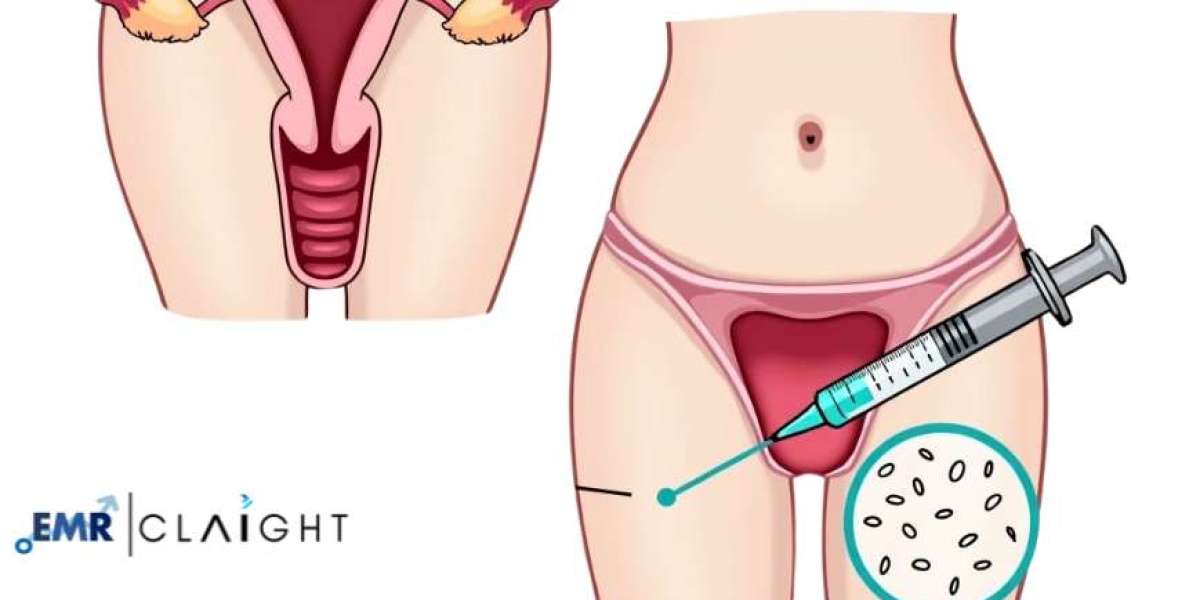The artificial insemination market is experiencing rapid growth, driven by rising infertility rates, increasing urbanization, and advancements in reproductive technologies. In 2024, the market was valued at USD 3.27 billion, and it is expected to grow at a CAGR of 9% from 2025 to 2034, reaching USD 7.10 billion by 2034.
This article explores the market size, trends, segmentation, growth drivers, key competitors, recent developments, and more.
Artificial Insemination Market Overview
Artificial insemination (AI) is a widely used fertility treatment that involves the direct placement of sperm into a woman's reproductive tract. The procedure is commonly used for individuals facing fertility challenges, including couples with male infertility issues, single parents, and LGBTQ+ couples.
Advancements in AI techniques, such as intrauterine insemination (IUI) and intravaginal insemination (IVI), have improved success rates, making assisted reproductive technology (ART) more accessible. The increasing awareness of fertility treatments, coupled with supportive government policies, is fueling market expansion.
Artificial Insemination Market Size
Market Value in 2024: USD 3.27 billion
Projected Market Value in 2034: USD 7.10 billion
CAGR (2025-2034): 9%
The rise in infertility cases due to changing lifestyle patterns, delayed parenthood, and increased stress levels are key factors driving market growth. Additionally, technological innovations and improved success rates of artificial insemination procedures contribute to market expansion.
Artificial Insemination Market Trends
1. Increasing Infertility Rates
Delayed pregnancies, stress, poor lifestyle choices, and rising health disorders contribute to declining fertility rates globally.
2. Growing Acceptance of Assisted Reproductive Technologies (ART)
Social acceptance of fertility treatments and LGBTQ+ family planning is increasing.
More individuals are opting for AI as a non-invasive and cost-effective fertility solution.
3. Advancements in AI Techniques
Innovations in sperm selection and cryopreservation enhance procedure success rates.
The development of home-based AI kits expands market reach.
4. Rising Investments in Fertility Clinics
Private and public investments in fertility centers are increasing worldwide.
Many countries are promoting reproductive healthcare services with favorable insurance policies.
5. Shift Towards Personalized Fertility Treatments
Tailored treatment plans based on individual reproductive health are gaining traction.
Genetic testing is improving the accuracy of fertility treatments.
Artificial Insemination Market Segmentation
The market is segmented based on several factors:
1. By Type
Intrauterine Insemination (IUI)
Intracervical Insemination (ICI)
Intravaginal Insemination (IVI)
Intratubal Insemination (ITI)
2. By Source
AI with Partner’s Sperm
AI with Donor Sperm
3. By End User
Fertility Clinics
Hospitals
Home-based AI Kits
Others
4. By Region
North America
Europe
Asia-Pacific
Latin America
Middle East & Africa
Get a Free Sample Report with Table of Contents
Artificial Insemination Market Growth
Key Drivers:
Increasing infertility rates worldwide
Growing demand for fertility treatments among same-sex couples and single parents
Rising investments in reproductive healthcare
Advancements in fertility preservation and sperm selection technologies
Expanding healthcare infrastructure in emerging economies
Challenges:
High cost of fertility treatments
Ethical and legal concerns surrounding sperm donation
Limited awareness in developing regions
Recent Developments in the Artificial Insemination Market
2024: Fujifilm Irvine Scientific launched an advanced sperm preparation medium for improved success rates in IUI.
2023: Vitrolife Inc. expanded its fertility treatment portfolio with innovative AI-based sperm analysis solutions.
2022: Hamilton Thorne, Inc. introduced a new range of laser-assisted reproductive technologies to enhance AI success.
Artificial Insemination Market Analysis: Key Competitor Overview
1. Vitrolife Inc.
A leading provider of fertility treatment solutions, including AI kits and embryo culture media.
2. Rinovum Women’s Health, Inc.
Specializes in home-based AI solutions, making fertility treatments more accessible.
3. Genea Ltd.
An innovator in fertility diagnostics and reproductive technologies.
4. Fujifilm Irvine Scientific, Inc.
Focuses on advanced sperm preparation and embryo culture systems.
5. Pride Angel Ltd.
Provides sperm donor matching services and AI support.
6. Rocket Medical Plc
A key manufacturer of medical devices for reproductive health.
7. Conceivex, Inc.
Developer of FDA-approved AI devices for home and clinical use.
8. Hamilton Thorne, Inc.
A pioneer in laser-assisted reproductive techniques.
9. Nikon Instruments Inc.
Leading supplier of high-tech imaging solutions for fertility labs.
10. Zander Scientific Inc.
Specializes in reproductive health research and fertility technologies.
11. Kitazato Corporation
Manufacturer of advanced cryopreservation and AI-related solutions.
12. Biogenics Inc.
Provides a comprehensive range of reproductive health services and products.
FAQ
1. What is the projected growth rate of the artificial insemination market?
The market is expected to grow at a CAGR of 9% from 2025 to 2034.
2. What factors are driving market growth?
Rising infertility rates, increasing acceptance of ART, and advancements in AI technologies.
3. Which companies are leading the artificial insemination market?
Key players include Vitrolife Inc., Fujifilm Irvine Scientific, Rinovum Women’s Health, and Hamilton Thorne, Inc.
4. What are the latest trends in the artificial insemination market?
Personalized fertility treatments, home-based AI kits, and AI-driven sperm analysis solutions.
5. Which region dominates the artificial insemination market?
North America holds the largest market share, followed by Europe and Asia-Pacific.






